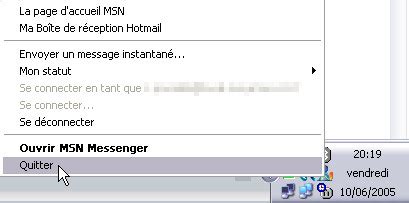Simple Solution: Patching Your MSN Messenger 1.0
MSN Messenger 1.0, a relic of the early internet era, holds a special place in the hearts of many. While no longer supported, some users might still have an interest in exploring this nostalgic piece of software history, perhaps for archival purposes or sheer curiosity. However, running such an outdated program poses security risks. This article addresses the crucial question: how can you potentially mitigate these risks without resorting to unofficial and potentially harmful methods?
The short answer is: you can't truly patch MSN Messenger 1.0 in the way you would a modern application. Microsoft no longer provides security updates or patches for this antiquated software. Any website claiming to offer patches is highly suspicious and should be avoided. Downloading files from untrusted sources could expose your system to malware and viruses. Security vulnerabilities present in MSN Messenger 1.0 are therefore essentially irremediable through official means.
H2: Why Patching MSN Messenger 1.0 is Nearly Impossible
The concept of "patching" implies applying a software update that fixes bugs and security flaws. These patches are typically delivered by the software's developer (in this case, Microsoft). Because Microsoft has long since discontinued support for MSN Messenger 1.0, no such patches exist or will ever be released. The underlying code is simply too old and incompatible with modern operating systems and security protocols.
H2: What are the Risks of Running MSN Messenger 1.0?
Running unsupported software like MSN Messenger 1.0 significantly increases your vulnerability to:
- Malware: Outdated software often contains known security holes that malicious actors can exploit to install malware on your computer.
- Viruses: Similar to malware, viruses can easily infect systems running obsolete programs.
- Data breaches: The lack of security updates means any data transmitted through MSN Messenger 1.0 is at a much higher risk of interception.
- System instability: The application might not function correctly with modern operating systems, potentially leading to system crashes or errors.
H2: Are there any "Safe" Alternatives?
Instead of attempting to run MSN Messenger 1.0, consider these alternatives if you want to experience the feeling of early instant messaging:
- Virtual Machines: You could run MSN Messenger 1.0 within a virtual machine (VM) using a very old operating system. However, this is a complex process requiring technical expertise and still doesn’t eliminate the inherent security risks. The VM itself would need robust security measures in place.
- Screen recordings: Searching online might reveal screen recordings of MSN Messenger 1.0 in action, allowing you to experience it without actually running the vulnerable software. This is the safest option by far.
- Emulation: Similar to VMs but potentially simpler, some emulators might be able to run the application, but this method also carries inherent risks.
H2: How Can I Protect My Computer from Malware?
Regardless of your desire to run MSN Messenger 1.0, maintaining a secure computing environment is paramount. Here are some essential steps:
- Install and maintain a reputable antivirus program: Regularly update your antivirus software to protect against the latest threats.
- Keep your operating system and software updated: Regularly install updates for your operating system and all other programs to patch known vulnerabilities.
- Be cautious about downloading files: Only download files from trusted sources. Avoid clicking on links or attachments from unknown senders.
- Use strong passwords: Employ strong, unique passwords for all your online accounts.
H2: Is it Worth the Risk?
The bottom line is that the risks associated with running MSN Messenger 1.0 far outweigh any potential benefits. The nostalgia factor is significant for some, but compromising your computer's security is never worth it. Exploring safer alternatives like screen recordings is a much wiser approach to experiencing a piece of internet history. Prioritizing your computer's security should always be a top priority.

